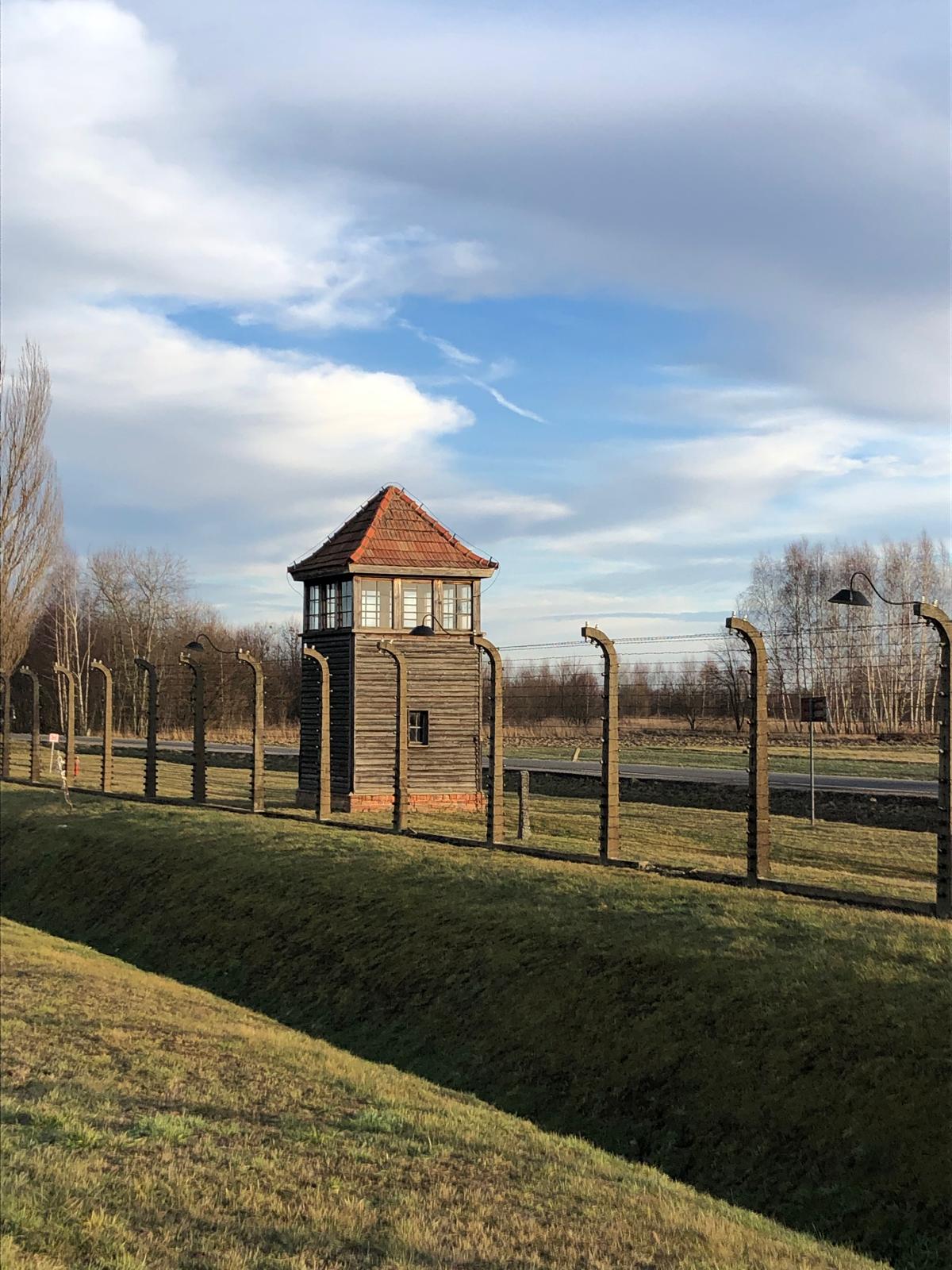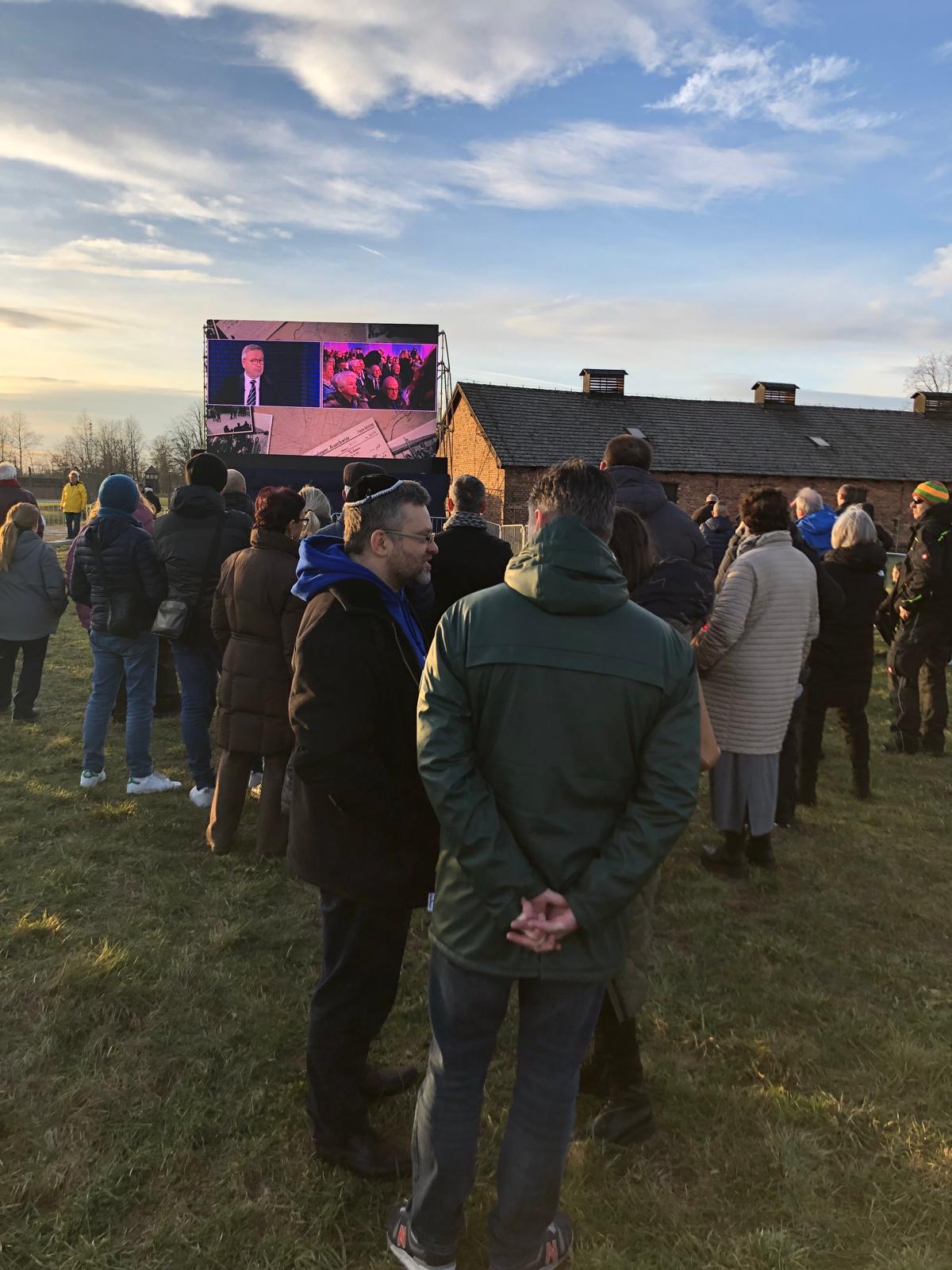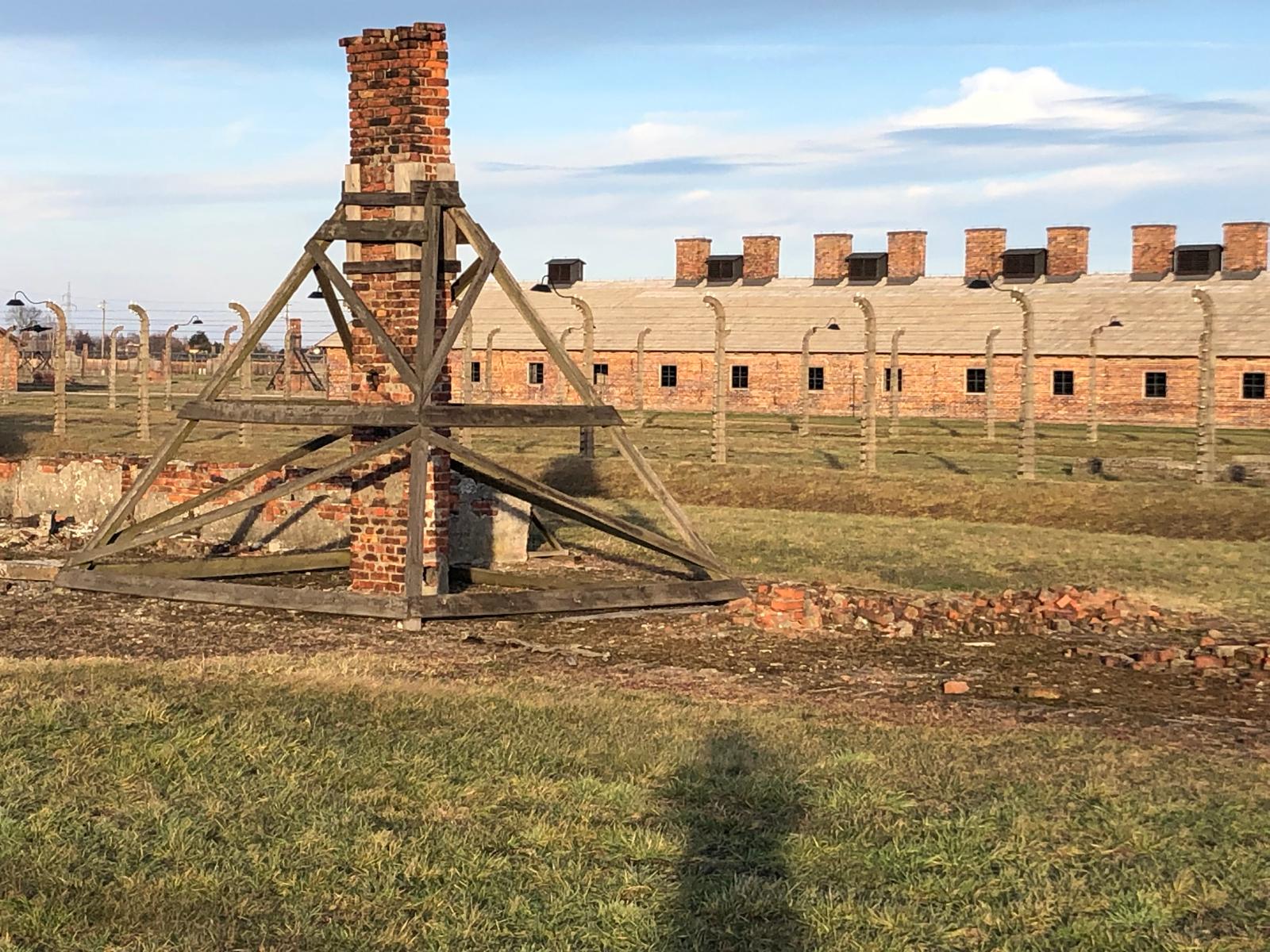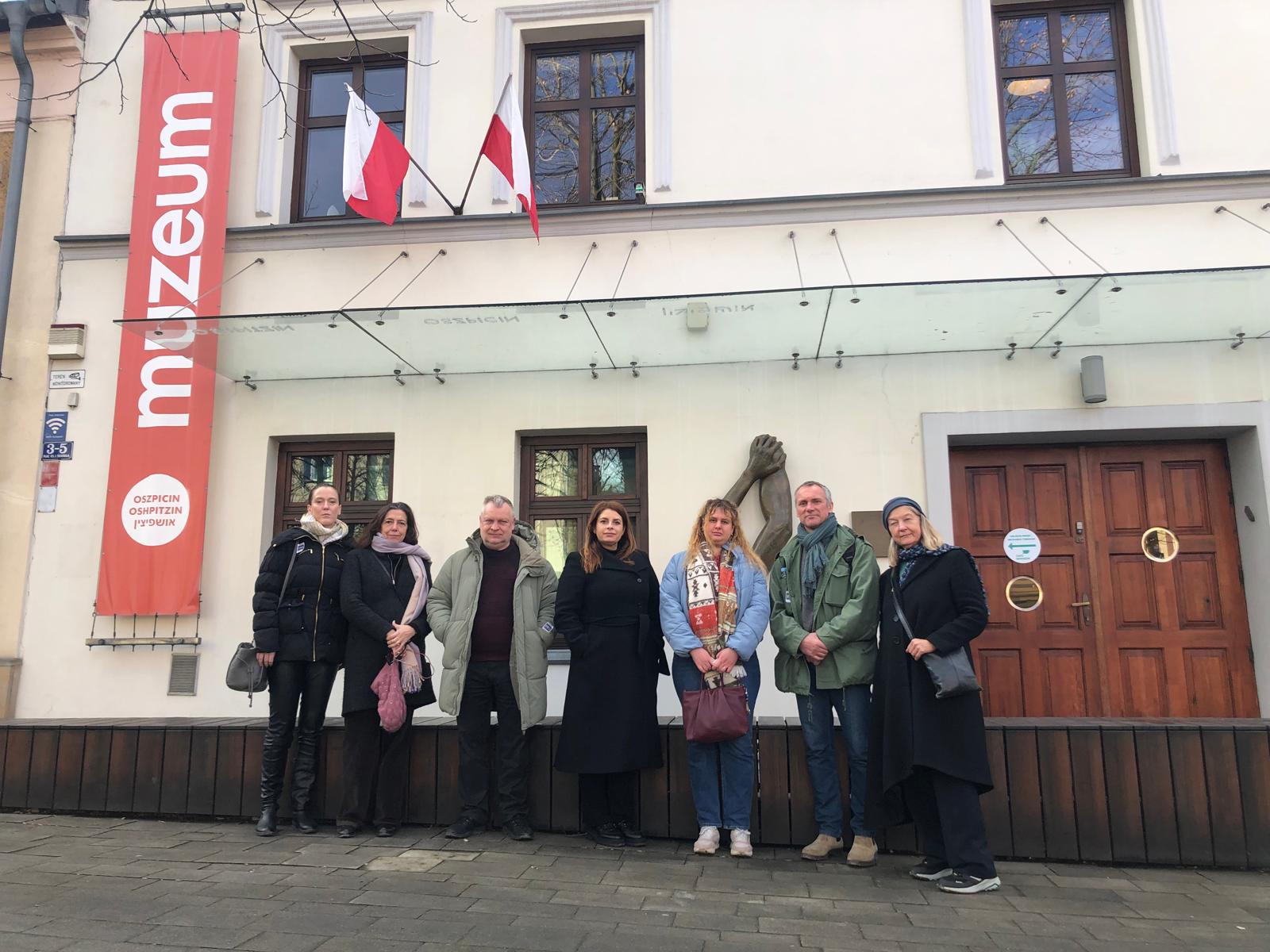Study Visit to Memorial and Museum Auschwitz-Birkenau
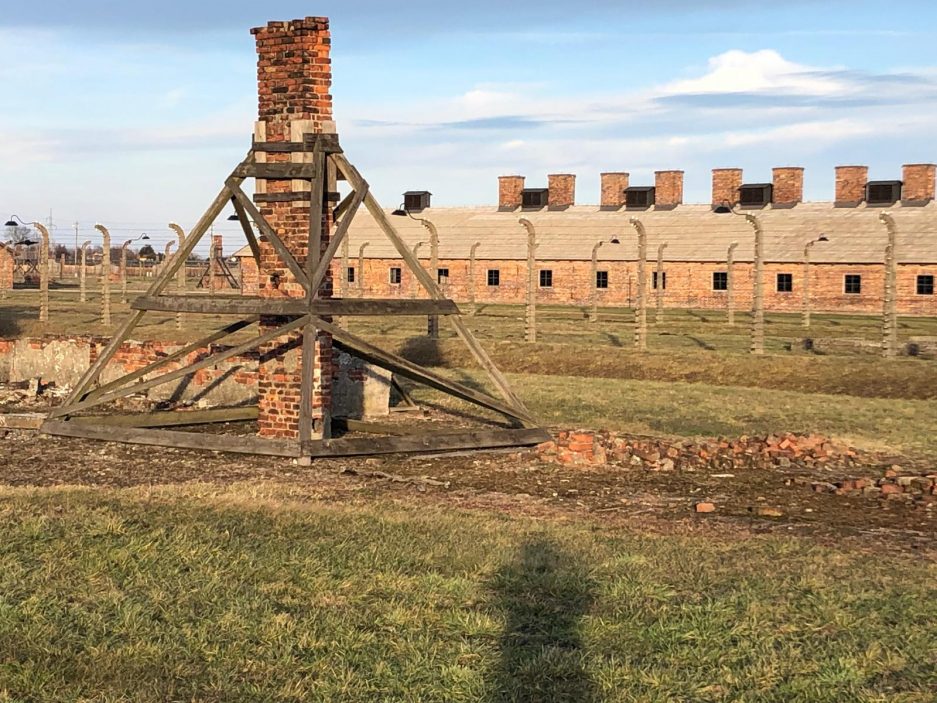
At a time when we commemorate the 80th anniversary of the liberation of the Auschwitz-Birkenau camp by the Red Army, we are aware of the need to continue advocating for European values, promoting awareness of the events during World War II, and enhancing education about the Holocaust and human rights. This is particularly important at the local level, in the countries, cities, and places from which individuals were deported and became prisoners in death camps. During a recent visit to the Auschwitz-Birkenau Memorial and Museum and the Jewish Center in Oświęcim, we discussed the need to connect visits to similar institutions with educational and awareness-raising programs at the local level.
Too often, the limited school hours dedicated to the Holocaust in formal education, from primary school to university, focus on death camps outside our borders, and only rarely on the fate of former neighbors and the stories of suffering, everyday life before the war, cooperation, and resistance. The stories of the victims from our neighborhoods would contribute to the understanding that the crimes were committed by some of our grandparents’ generation and to the realization of how exclusivity can repeatedly escalate into violence against those who are different.
Only in a few European Union member states, professional training programs for the police, judiciary and other professionals include contents related to the Holocaust, study of the biographies of the victims and visits to places of suffering such as concentration camps.
Every day, while working on awareness-raising programs in Croatia, Slovenia, Italy, Germany, Romania, and Spain, we encounter professionals who convey accurate facts, as well as an increasing number of successful spreaders of false news who distort and even deny the Holocaust. Although there has been some progress at the European level, partly thanks to the policies of the European Commission, especially through the European Remembrance programs, in raising awareness among different generations about the Holocaust, other genocides, and war crimes, only a small portion of societies in member countries is aware of the dark side of history marked by crimes, collaboration with Nazis and fascists, as well as resistance to violence. An even smaller number of individuals, institutions, and even governments are willing to acknowledge and confront the crimes committed by their ancestors and compatriots. Data on the frequency of incidents involving the use of the salute of defeated military units in World War II at mass gatherings and monitoring of social networks where messages approving the violence of totalitarian regimes are frequent, indicate that a lack of understanding of the past often accompanies exclusion towards migrants and minorities today. It is concerning that there is a lack of universal condemnation of crimes and a humanized approach to all victims, both those from the past and those suffering today.
Study Visit is part of project “Power of Personal Stories in Confronting Oblivion” supported by European Union.


